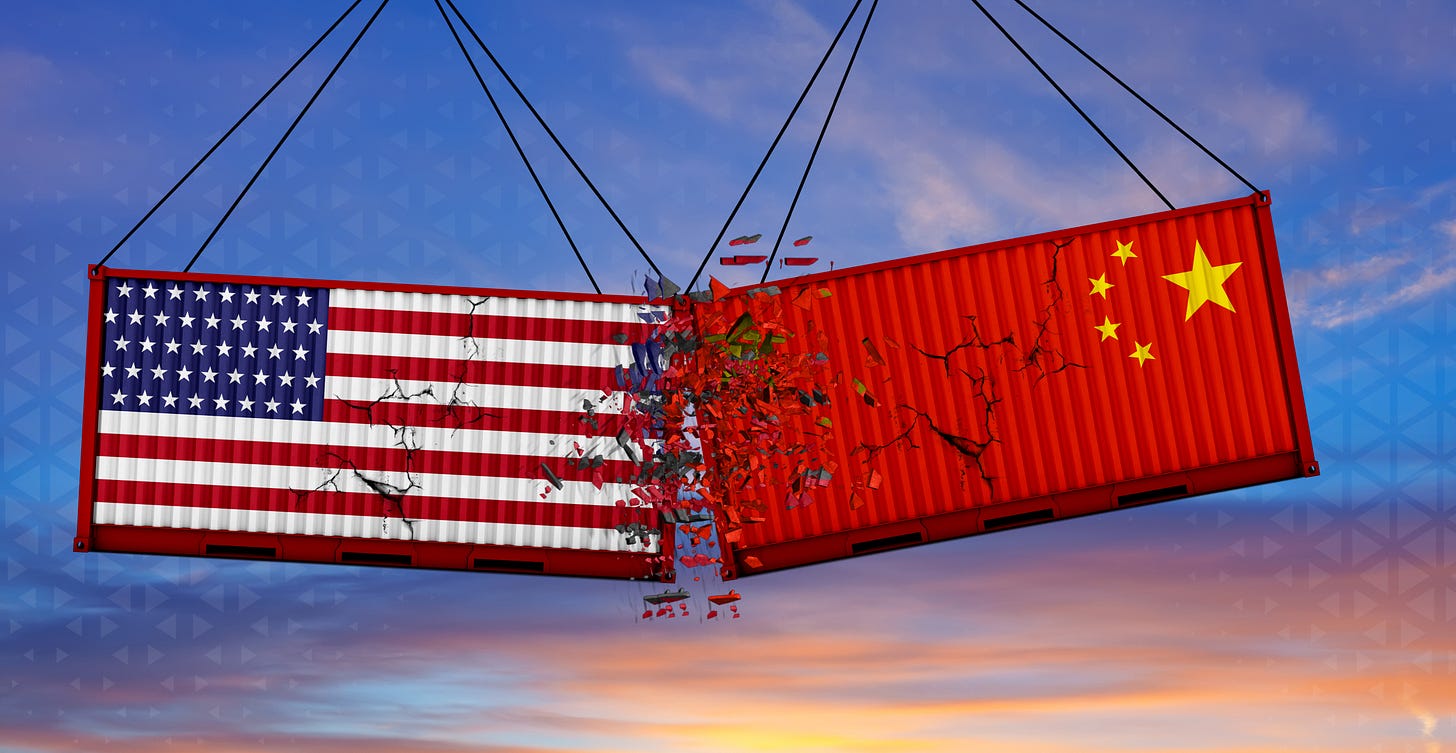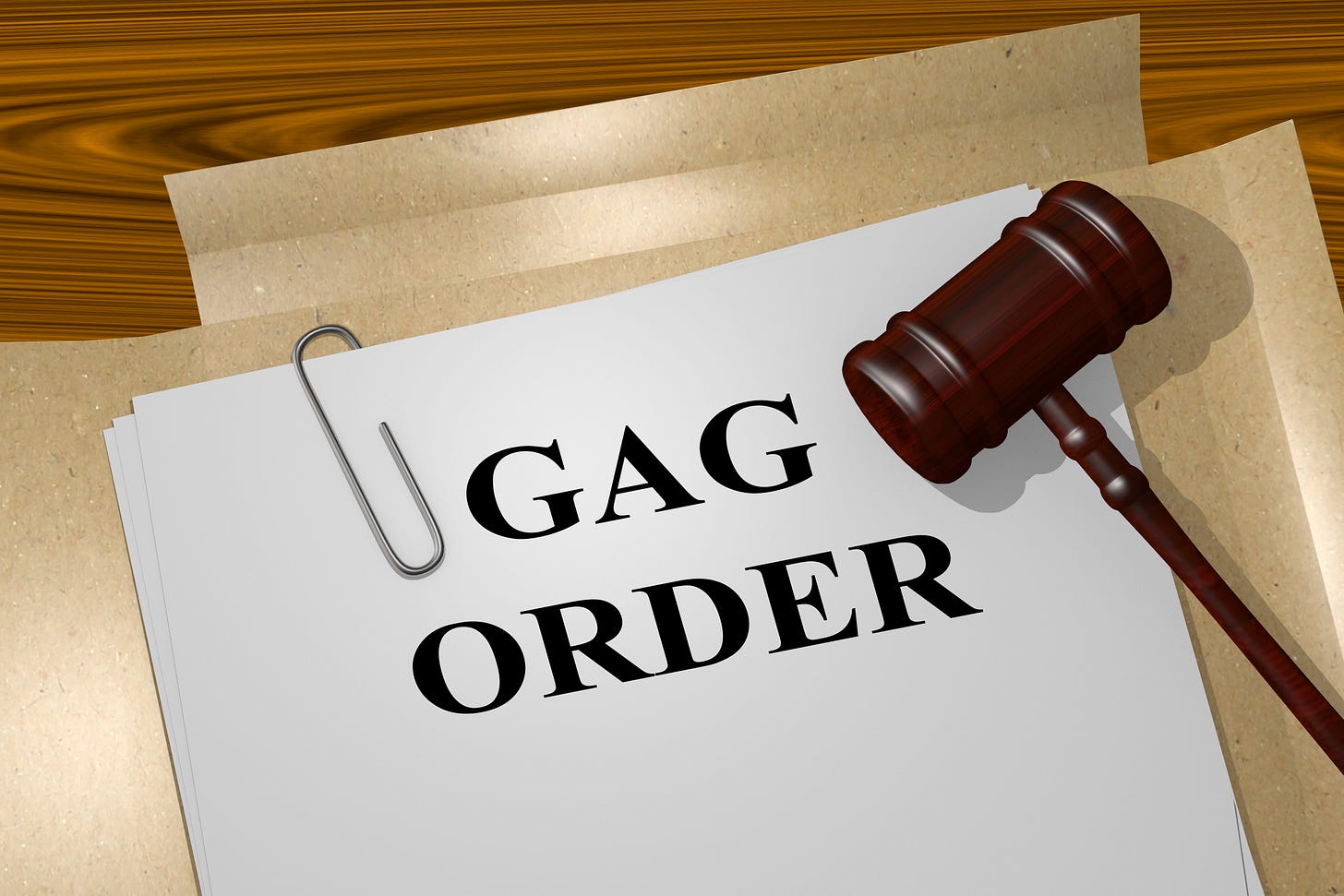E-Pluribus | June 8, 2021
Banning "misinformation," pushing back against China, and a gag order on The New York Times.
A round up of the latest and best writing and musings on the rise of illiberalism in the public discourse:
Robby Soave: The Media's Lab Leak Debacle Shows Why Banning 'Misinformation' Is a Terrible Idea
The four years of Donald Trump’s presidency saw a marked increase in the willingness of the media to pronounce the unambiguous truth or falsity of theories, claims and statements rather than simply reporting on them as disinterested observers. Robby Soave points to the COVID Wuhan lab leak story as a good example of why the trend is a bad one, particularly since such behavior often spills over into active censorship with thinly disguised political motives.
This change in policy comes in the midst of heated debate about how to respond to the perception that social media is amplifying the spread of false information. For the last several years, journalists and politicians have pushed to police so-called misinformation through various means. Major news organizations have hired mis- or disinformation reporters. Lawmakers such as Sen. Elizabeth Warren (D–Mass.) and House Speaker Nancy Pelosi (D–Calif.) have urged social media sites to prohibit speech deemed wrong or dangerous—and have sometimes suggested that this should be required by law. More recently, various groups have asked President Joe Biden to establish a federal initiative to combat online misinformation.
But Facebook's concession that the lab leak story it once viewed as demonstrably false is actually possibly true should put to rest the idea that banning or regulating misinformation should be a chief public policy goal.
It's one thing to discuss, debate, and correct wrong ideas, and both tech companies and media have roles to play in fostering healthy public dialogue. But Team Blue's recent obsession with rendering unsayable anything that clashes with its preferred narrative is the height of hubris. The conversation should not be closed by the government and its yes-men in journalism, in tech, or even in public health.
Read it all here.
Ellen Bork: It’s Time for Democracies to Push Back Against China’s Authoritarianism
China is the elephant in the room, but one that everyone talks about. Yet no one actually seems to know exactly what to do. Ellen Bork highlights some of the actions the Trump and Biden administrations have taken to try to inflict pain on the government of China and proposes some additional measures to attempt to force some accountability on China for its authoritarian abuses.
In the U.S., China is a subject of considerable bipartisan agreement and cooperation. President Joe Biden has continued and expanded some Trump administration policies, including a ban on U.S. investment in military companies. Europe, too, is now alert to China’s predatory economic tactics and its efforts to sow dissension among the democracies of the European Union. Italy has changed its position dramatically from just two years ago when it enthusiastically joined China’s Belt and Road investment and infrastructure initiative.
A true test of how much things have changed will come with the democracies’ approach to two upcoming events. When Beijing hosted the 2008 Summer Olympic Games, world leaders pretended that hosting an international sporting event could transform, rather than legitimize, the Communist dictatorship. President George W. Bush and other democratic leaders attended the games despite evictions and expropriation of property, lockdowns of dissidents and curbs on journalists, frittering away moral and political capital in the process. This year, no one would claim that the 2022 Winter Olympic Games in Beijing will do anything but legitimize and boost General Secretary Xi Jinping and the Communist Party dictatorship.
[…]
Today, China is using subversion charges to crush Hong Kong’s democracy movement. Dozens, including Lester Shum, Wu Chi-wai, and Joshua Wong—too many to list here—are due to stand trial under the National Security Law Beijing imposed last June, merely for organizing an informal primary among pro-democracy candidates. Jimmy Lai, the founder of the popular Apple Daily newspaper, who is already serving jail terms for peaceful protests, also faces trial on subversion charges.
Read it all at The Dispatch.
New York Times: Biden, Congress and the Free Press
Although the Biden administration has announced its intention to back off some of the aggressive investigations of past administrations into leaks to journalists, it can’t come fast enough for the editorial board of The New York Times. News of a gag order on Times executives has the board wondering how serious President Biden is about his commitment to transparency in such matters.
President Biden has ordered a change of course, in response to multiple revelations in recent weeks that federal prosecutors under Donald Trump had secretly obtained phone and email records of journalists at CNN and The Washington Post, apparently as part of investigations into leaks of classified information. The seized records included logs of work phone numbers and email accounts, but also of reporters’ personal email accounts and home phone numbers.
“It’s simply, simply wrong,” Mr. Biden said last month of seizing reporters’ emails and phone records. “I will not let that happen.” But then The Times reported last week that the Trump Justice Department had also secretly seized the phone records of four Times reporters, covering nearly four months in 2017 — and that the investigation was continuing under the Biden administration.
The story got only worse. Two days after Mr. Biden’s Justice Department finally disclosed the seizure of the phone records, The Times revealed that the department had also secretly sought to obtain email logs of Times reporters. None of the logs were seized, but Times senior executives were subject to a gag order for three months as they and the paper’s lawyers fought to stop the seizure. When the government piles secrecy upon secrecy, one has to wonder whose interests are really being served.
Read it all here.
Around Twitter
Sometimes freedom is not appreciated, or apparently even desired:
Glenn Greenwald on the sometimes blurry line on state/private censorship:
From Sarah McLaughlin of the Foundation for Individual Rights in Education, a thread of threads on threats:
[click through for remaining tweets in thread]
Christopher Hooks says the right is actually doing what it has been accusing the left of doing in education:
David French with a similar sentiment:
A short video from Foundation Against Intolerance & Racism on “Loving Day”:













